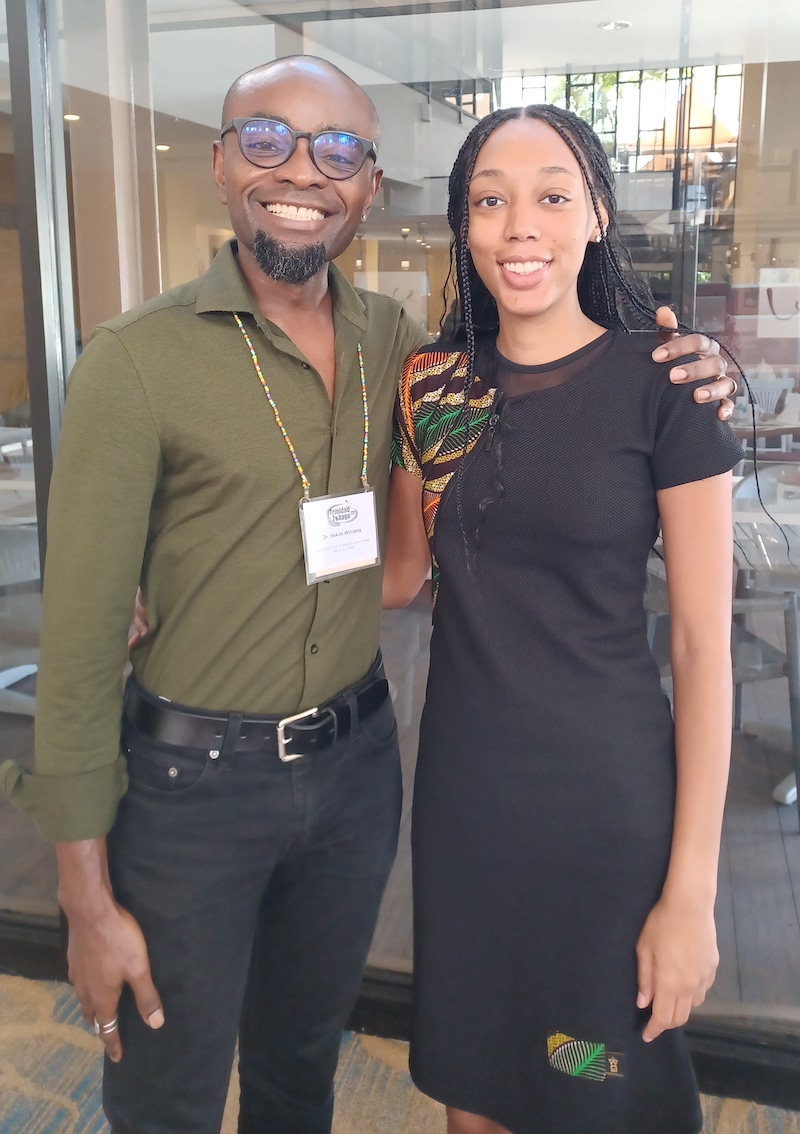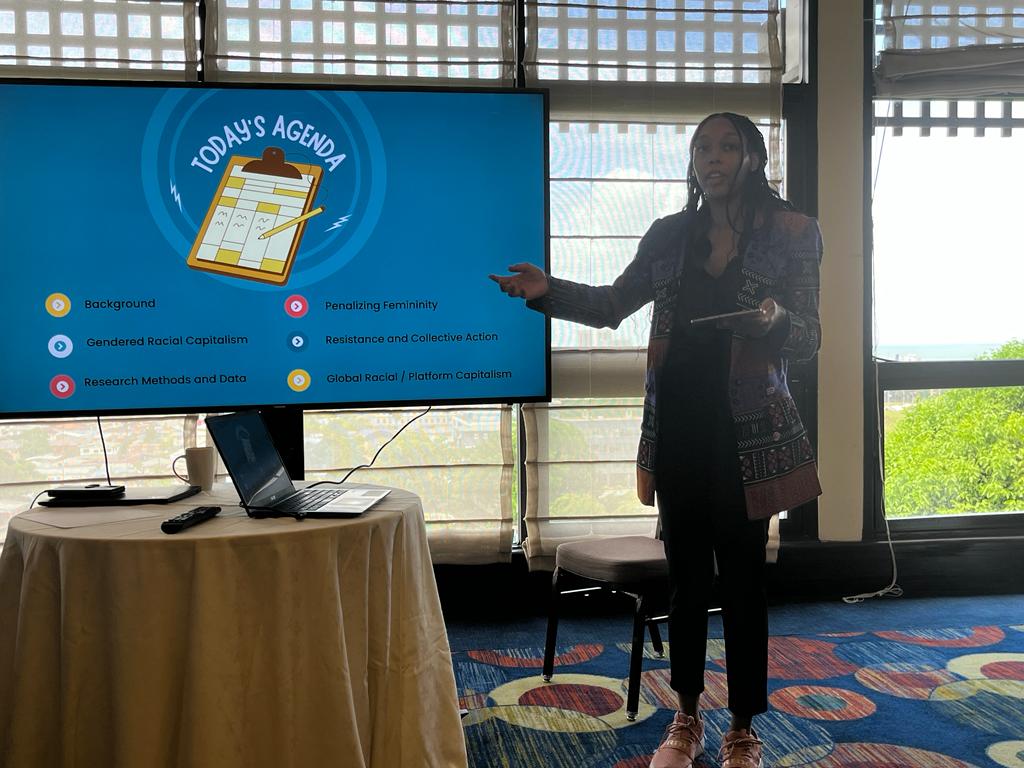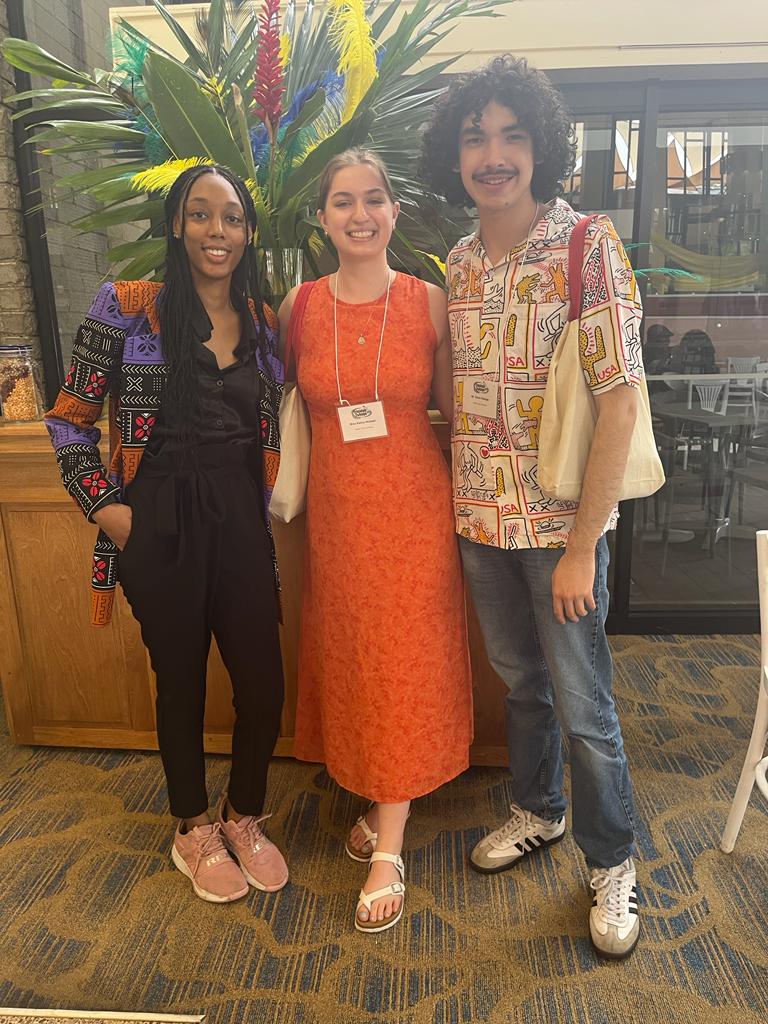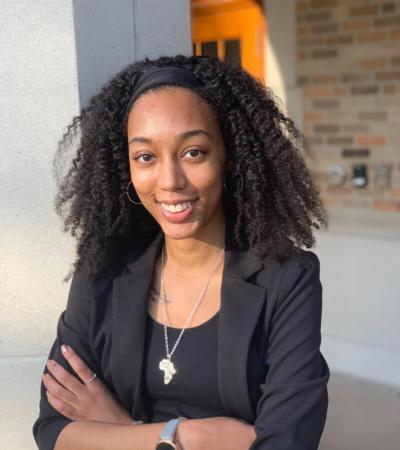International Peace Research Association Conference (IPRA) 2023; San Juan, Trinidad and Tobago
Kellogg Institute Conference Travel Grants
Title of Presentation: Platform Technologies of Peace: Using Platform Technologies to Promote Women Empowerment in Ghana and the U.S.
Conference: International Peace Research Association Conference (IPRA) 2023; San Juan, Trinidad and Tobago
May 17 – May 21, 2023
Report:



At the 2023 IPRA Conference held in Trinidad and Tobago, I presented the preliminary findings from my dissertation project wherein I examined Ghanaian women's experiences and challenges when trying to enter/work within the platform economy. Additionally, I co-facilitated an interactive workshop titled “Uprooting Coloniality: Planting the Seeds for Imagination” with a fellow Notre Dame colleague, Amaryst Parks-King. Through the interactive workshop on imagination, my colleague and I achieved our goals which were to have attendants:
- Theorize and Practice Radical Imagination
- Connect Radical Imagination to Action and Praxis
- Understand and Connect with Fellow Workshop Attendants
- Create New Images of the Future.
This was accomplished through a series of activities wherein participants formed 4 different groups to create a critical analysis of how white supremacy structures our current social institutions and then reimagine a world without white supremacy. This workshop was well received by the conference attendants, throughout the rest of the conference participants mentioned that they enjoyed the discussion and topics covered. One individual remarked “I never did a problem tree before, so I was nervous, but this was not only helpful but fun too. It was interesting to hear we all had the same ideas and thoughts even though we do such different work.” The success of this presentation was made even more evident by the fact that Amaryst and I were invited to write a chapter in an upcoming book on imagination in praxis at the end of our workshop by one of the attendants.
Lastly, during my presentation, I explored the idea of “Penalizing Femininity” which is meant to capture the extent to which Black women working in the platform economy made claims such as: “I feel like I’m punished for being a woman” or “As a woman, clients often expect you to be a servant, to given in to every demand and cater to every need even if doesn’t relate to the business.” During my presentation, I discussed the extent to which the way platform applications are structured (the technology/algorithm and interface) reiterates and gives power to gendered disparities and negative attitudes and beliefs about women. Furthermore, I engaged attendants in a conversation about the extent to which platform technology reproduces certain gender and racial inequities in a Global context. My findings demonstrate this as many of the Black women I interviews in Ghana narrated instances in which their labor was devalued on platform applications like Uber and Task Rabbit. Even the digital entrepreneurs I interviewed mentioned that when sharing their ideas for new platform applications with international audiences and start-up funders, they were systematically ignored or passed over for funding. Although this was the first time I presented my dissertation research, I believe this experience was highly beneficial one of the other presenters who spoke during my session offered to co-author an article focusing on women’s voices on social media platform applications. In closing, I would highly recommend that Notre Dame graduate students attend the IPRA conference in the future.






